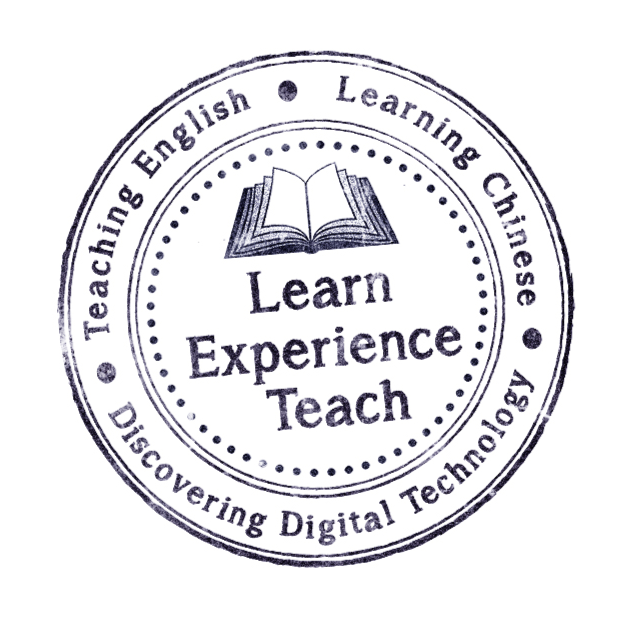Background
Having thoroughly enjoyed the Education Revolution talk at the American Chamber of Commerce last month, I invited the speaker, Noel Thomas, co-principal at Yew Chung International School in Beijing, for an informal video interview. From Apple 2E’s to BBC micro-computers to 1-2-1 laptop computing and the internet, Noel has been at the heart of technological change throughout his 40 years in the teaching service.
PART THREE
Virtual Words and Education
“Look at the Oculus Rift and that kind of the immersive, 3D lived experience is still in it’s infancy. Think about how that’s going to revolutionise education”
“Watching my son, who’s quite a gamer, engage and immerse himself in those kinds of experiences. And then you look at the gamecraft movement. The most popular YouTube channels are kids sharing their experiences in Gamecraft. What is that telling us about kids?”
My thoughts
I agree with Noel, that a good starting point for innovation in teaching and learning, is to think about what our learners enjoy, and spend time doing. So if I contextualise MMORPGs (Massively Mutliplayer Online Role-playing Games), such as Gamecraft mentioned above, within my own knowledge base, which is language learning, then research suggests that, “……participation in network-based gaming in terms of enhanced production of TL output and extensive practice in the four skills” (Rankin et al., 2006b and Thorne, 2008 cited in Peterson, 2010:436). Also, “These studies contain evidence suggesting that interaction in a MMORPG facilitates situated learning involving collaborative dialogue, negotiation, and self-repair.” In this way, making a connection between learners’ interests and teachers’ knowledge will engage learners and facilitate learning.
Are Today’s Students Digital Natives?
“I don’t think I ever got to teach digital natives. But now the kids in schools are digital natives. And I think that means they don’t notice the technology.”
“The number of kids actually enrolling in computer-related courses is diminishing, rather than growing. And I think that’s because now, they just do it“.
“We live in a world where we use whatever technology is available that works for you to solve the problem. So the school’s job is to invent the problem that generates the learning. And then, when the kids says I’ve got nothing available to solve that problem, then to suggest to them one of things you’ve got available is this piece technology, which is very likely to be any available piece of technology. More and more of the software is becoming web-based, there are very few tools now that you can’t access online.”
My thoughts
According to Noel, kids today have a natural aversion to technology through mobile phones and tablets. They have developed new habits of accessing information through these devices via touch. If, students today are developing new social behaviours, then I feel we have a certain responsibility to adapt what we do to those behaviours. Being a non-digital native, like myself, may mean it takes time to catch up and re-train. However, there is value to be had in expanding not only your own personal limitations and expectations, but also realising that students today are learning in ways that are much different from our own, just one or two decades ago.
Reflections on Note-Taking, Assessment and Home Schooling
“I almost can’t believe that so much of the world writes everything other than a short note with the editing capacity of a word processor. I write almost nothing where I don’t have the capacity to check it before I send it.”
“I thought assessment would have move on.”
(Karina prompts, “What will replace it?”) “I don’t think anything will replace that single absurdity, I think the whole infrastructure that depends on it crumbles. And then that single task within it, no longer becomes relevant.”
“5% of American kids now are home-schooled. Maybe that becomes 10%, 12%,15%, and perhaps then that becomes instead of being a kind of a weird and wonderful hippy option, it gets to a point where it is sufficiently normal, that companies start to recognise that supporting home-schooling is an available profit centre.”
My thoughts
With online courses and MOOCs gaining popularity, it stands to reason that the role of certificates and qualifications to measure ability will change. Indeed, the UK’s Open University is leading the way with an Open degree, one which the student may select their own modules, within reason, in order to pass the course. (As opposed to following a degree where all of the modules are pre-selected for you). This shows how the demand for personalised education is increasing, and how educational institutions may actively and positively respond to that.
Final Thoughts
“I think that the change will come from the outside. I think that it wont be teachers in schools that do it. Teachers in school will have it done to them.”
References
Peterson, M (2010). Massively multiplayer online role-playing games as arenas for second language learning. Computer Assisted Language Learning, 23, 5, pp 429-439

1 Comment on “Interview with Noel Thomas, Co-Principal at YCIS, Beijing (Part 3)”
Comments are closed.